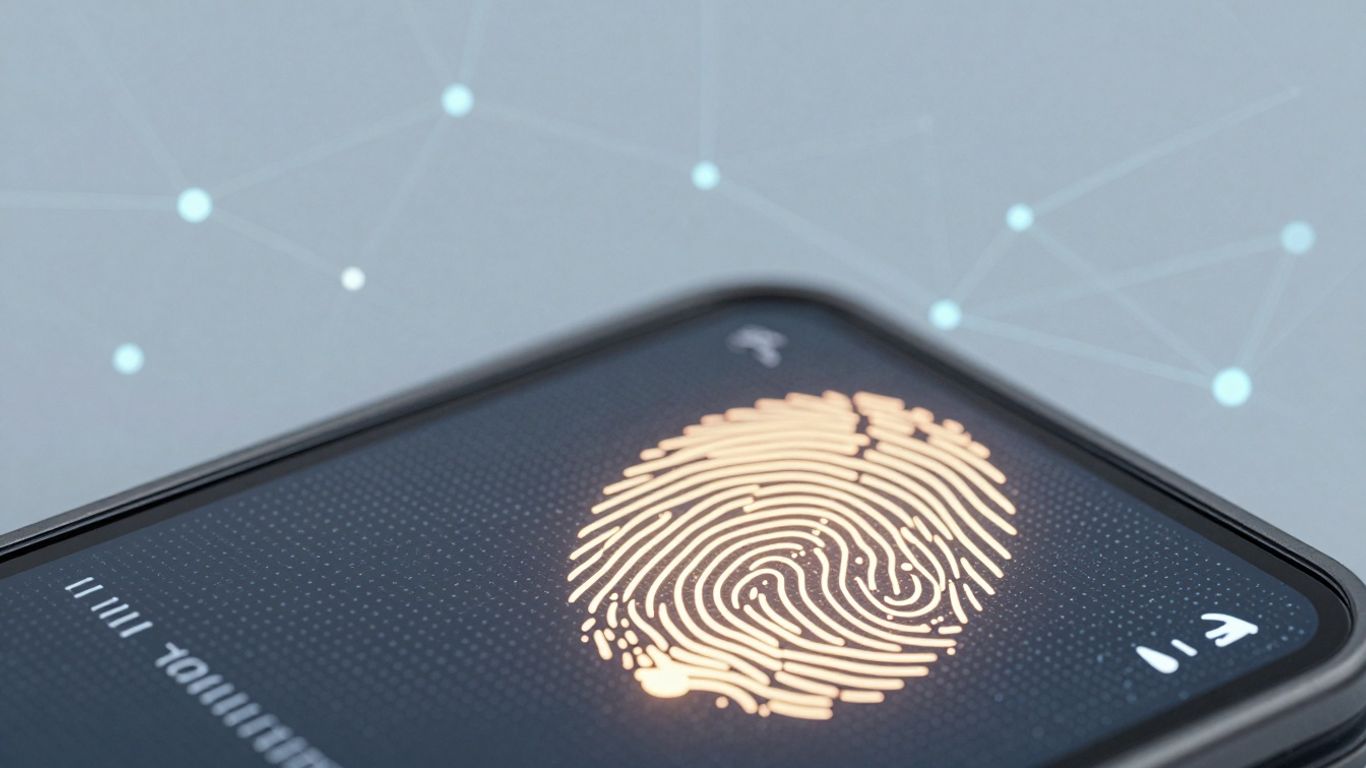[ newsletter ]
Stay ahead of Web3 threats—subscribe to our newsletter for the latest in blockchain security insights and updates.
Thank you! Your submission has been received!
Oops! Something went wrong. Please try again.
Discover Reddit's top picks for the best crypto wallet in 2025. Compare Ledger, Trezor, MetaMask, and more for secure crypto management.





Looking for the best crypto wallet reddit 2025? You've come to the right place. The crypto world moves fast, and picking the right wallet is a big deal for keeping your digital money safe and sound. We've dug through what people are saying on Reddit to bring you a rundown of the top contenders for managing your coins next year. It’s not just about security; it’s also about how easy it is to use and if it fits your specific crypto habits. Let's check out the wallets that the Reddit community is buzzing about.
Ledger Nano S has been a go-to for many in the crypto space for a while now, and it's easy to see why. It's a hardware wallet, meaning your private keys, the secret codes that control your crypto, are kept offline on the device itself. This is a big deal for security, especially when you're dealing with significant amounts of digital assets.
The core idea behind Ledger is keeping your crypto truly yours, away from online threats. It's like having a physical vault for your digital money. When you need to make a transaction, you connect the device, confirm the details on its small screen, and approve it with physical buttons. This extra step is what makes it so secure.
Here's a quick look at what makes it stand out:
It's not the flashiest device out there, and sometimes managing it can feel a bit clunky if you're used to slick mobile apps. You also need the physical device with you for every transaction, which can be a minor inconvenience if you're on the go. But for solid, dependable security, especially for long-term holding, the Ledger Nano S is a really strong contender.
For anyone serious about protecting their digital assets, a hardware wallet like the Ledger Nano S is a smart investment. It adds a significant layer of security that software wallets just can't match.

If Ledger is the high-performance sports car of cold wallets, Trezor is the dependable luxury sedan: smooth, secure, and trusted by veterans. It’s the cold wallet for crypto trading that simplifies key management without cutting corners on robust security features. The Trezor Safe 5, for instance, supports over 9,000 crypto assets, making it a solid choice for diversified portfolios. Its open-source firmware is a big plus, as it means the community can vet it, and it plays nicely with browser extensions like MetaMask and Rabby, letting you trade directly from cold storage.
For crypto users who want a secure wallet that’s intuitive enough for newcomers but still customizable for power users, Trezor offers a great balance of cold storage and usability. The Trezor Safe 5, a follow-up to the popular Model T, features a 1.54-inch color touchscreen with tough Gorilla Glass 3 and uses a secure EAL6+ chip. It also has a microSD card slot and supports a lot of cryptocurrencies. You even get haptic feedback, which makes it feel a bit more like using a smartphone.
Security is also a strong point. Trezor wallets include passphrase encryption, secure PIN entry, and compatibility with Shamir Backup, giving you several ways to secure your recovery. It’s often recommended as a first cold wallet for those new to the space.
Here’s a quick look at some of its strengths:
While Trezor is a solid choice, it's worth noting that it can be priced higher than some other hardware wallets. Also, the device lacks Bluetooth or Wi-Fi capabilities, and its coin support, while extensive, might be less than some competitors. You also need to be careful when writing down your recovery phrase.
When comparing wallets, Trezor Safe 5 stands out for beginner cold storage with a simple user interface, supporting over 9,000 crypto assets and integrating with MetaMask for trading.
When you're looking for a solid software wallet, especially for Litecoin, Electrum-LTC often pops up in Reddit discussions. It's a pretty straightforward option, built on the back of the well-known Electrum Bitcoin wallet. This means it inherits a lot of that reliability and a focus on security, but specifically tailored for Litecoin users.
Electrum-LTC is a great choice if you want a desktop wallet that's lightweight and doesn't take up a ton of resources. It's not a hardware wallet, so you're keeping your private keys on your computer, which is something to be mindful of. But for day-to-day transactions or just keeping a decent amount of LTC without needing a physical device, it's a popular pick.
Here's a quick rundown of why people like it:
Remember, with any software wallet, keeping your computer secure is a big deal. Make sure your operating system is up-to-date, use strong passwords, and be careful about what you download.
While it's not as fancy as some of the newer mobile apps or as secure as a hardware wallet for long-term storage, Electrum-LTC holds its own as a reliable desktop solution for Litecoin.
MetaMask is a really popular choice, especially if you're getting into things like DeFi or NFTs. It works as a browser extension, which makes it super easy to connect to all sorts of decentralized applications, or dApps as people call them. It's basically your gateway to the Web3 world. Think of it like a digital wallet you can use right in your browser. It supports a lot of different blockchains, not just Ethereum, which is a big plus. You can manage your crypto, swap tokens, and interact with smart contracts all from one place. It's pretty straightforward to set up, too. You just download the extension, create a password, and then you get a secret recovery phrase. Make sure you write that down and keep it safe, because if you lose it, you lose access to your funds. It's a common piece of advice, but it's really important.
MetaMask is often recommended because it's so versatile. You can use it with hardware wallets like Ledger or Trezor for extra security, or just use it on its own as a software wallet. The community is always developing new features and integrations, too, which keeps it feeling fresh and up-to-date.
Some people like to add extra features using what they call 'Snaps'. These can add new capabilities, like better security checks or support for more blockchains. It's a way to customize your wallet experience. For anyone looking to explore the decentralized web, MetaMask is a solid starting point.
Here’s a quick look at what makes it stand out:
MyEtherWallet, often just called MEW, has been around for a while, basically since Ethereum itself got going. It's a web-based wallet, which means you access it through your browser. This gives you direct control over your private keys, which is a big deal for security. You're not relying on a third party to hold your crypto; it's all in your hands.
MEW is pretty flexible. You can use it with hardware wallets like Ledger or Trezor for extra safety, or you can create a new wallet right there. It supports a lot of different Ethereum-based tokens, and you can even connect it to decentralized applications (dApps) to interact with the Ethereum ecosystem.
It's important to know that MEW is a tool, and like any tool, you need to use it correctly.
Always make sure you're on the official MyEtherWallet website (MEW) to avoid phishing scams. Double-checking the URL is super important.
While it started with Ethereum, MEW has been expanding. They've added support for other coins, including Bitcoin, which makes it a bit more versatile if you're holding more than just ETH. It’s a solid choice if you want to manage your assets directly and understand the importance of keeping your private keys safe. For those looking for a way to manage their digital assets, MEW offers a straightforward approach to interacting with the blockchain. You can find out more about its history and recent updates on the official MEW website.

Trust Wallet is a pretty solid option if you're looking for a mobile-first crypto experience. It's a non-custodial wallet, meaning you're in charge of your private keys, which is a big deal in the crypto world. This gives you direct control over your assets. It's super popular because it supports a massive range of cryptocurrencies and blockchain networks, so you're not usually limited in what you can hold or trade. Plus, it's really easy to use, even if you're just starting out.
One of the cool things about Trust Wallet is how it integrates with decentralized applications (dApps) and NFTs. You can browse Web3 directly from the app, which is handy for exploring different crypto projects or managing your digital collectibles. It also has a built-in staking feature for some cryptocurrencies, letting you earn rewards without moving your funds elsewhere.
Trust Wallet makes it simple to manage your crypto, interact with dApps, and even stake your assets, all from your phone. It's a good all-around choice for everyday crypto users.
Here’s a quick look at what makes it stand out:
If you're interested in seeing how it stacks up against other popular choices, you can check out this review of Trust Wallet which covers its features in more detail.
So, you've decided to take your crypto trading into your own hands, which is a smart move. When you're actively trading, you need a wallet that's more than just a place to store your coins; it needs to be a tool. Think of it like this: if you're a carpenter, you wouldn't use a dull saw, right? Same idea here. The right wallet can make a big difference in how fast and smoothly you can swap tokens, check prices, or grab those new NFTs.
Best Wallet really stands out for traders because it’s built with that in mind. It’s a non-custodial wallet, meaning you keep full control of your private keys, which is pretty important. What makes it a top pick for active users is its built-in decentralized exchange (DEX). This lets you swap tokens directly from the wallet without needing to go to another site. It supports a bunch of popular chains like Ethereum, Solana, and BNB Chain, so you're not limited.
Here’s a quick look at what makes it a strong contender:
It’s designed for people who are actually doing things with their crypto, not just letting it sit there. If you're looking for a wallet that keeps up with your trading pace, this one is definitely worth checking out. You can find more details about this self-custodial option in our dedicated Best Wallet review for 2025.
If you're tired of seed phrases and the worry that comes with them, Zengo offers a different approach. It's a non-custodial wallet that doesn't actually use private keys in the traditional sense. Instead, it relies on something called Multi-Party Computation (MPC) and your device's secure enclave, plus biometric authentication like your fingerprint or face scan. This keyless system is a big deal for people who want to trade crypto without the stress of losing or messing up a recovery phrase.
Zengo is pretty slick for anyone who day-trades across different DeFi platforms. The mobile app is easy to get around, swapping tokens feels smooth, and you can keep an eye on your transactions in real-time. It’s a good option if you’re newer to DeFi and want a simpler, yet still secure, way to get involved and manage your trades.
While folks who are super into advanced DeFi might miss the fine-grained control some other wallets offer, Zengo really hits a sweet spot. It balances security, ease of use, and performance well, making it a solid pick for active traders who are often on the move.
Here’s a quick look at what Zengo brings to the table:
Zengo's focus on removing the private key management burden makes it stand out. It aims to simplify the user experience significantly, which can be a major plus in the fast-paced world of crypto trading, especially for those who find traditional methods a bit daunting.
Binance Wallet is a pretty interesting option, especially if you're already knee-deep in the Binance ecosystem. It's basically built right into the Binance app, which makes switching between your exchange account and your Web3 wallet super easy. You can trade, interact with decentralized apps (dApps), and manage your NFTs all from one place. It supports a bunch of different blockchains like BNB Chain and Ethereum, and you can access it through the app or a browser extension.
The big draw here is the convenience for existing Binance users. It feels like a natural extension of the exchange, offering low fees and quick swaps. Plus, it has some decent security features like biometric authentication.
Here's a quick look at what it offers:
It's not exactly for the hardcore decentralization crowd, since it's so tied to Binance. But for everyday use and trading, it's a solid choice.
While it offers a blend of convenience and self-custody, remember that its deep integration means you're still quite connected to the broader Binance infrastructure. It's a trade-off between ease of use and absolute independence.
Bybit Wallet is a pretty interesting option, especially if you're already messing around with the Bybit exchange. It’s built right into their app, which makes switching between your exchange funds and your actual crypto assets super easy. You can manage NFTs, swap tokens, and it’s got some decent security features like fingerprint login.
What’s cool is that it supports a bunch of different blockchains, like Ethereum, Polygon, and BNB Chain. This means you can jump between different crypto networks without too much hassle. They also have this one-click bridging thing, which is handy for moving your assets around to check out new protocols.
One of the things that caught my eye is that Bybit Wallet is open source. This means anyone can look at the code to see what it’s doing. It’s a good sign for transparency and security, even if most of us won’t actually be digging through lines of code ourselves.
It’s a solid choice for traders who want a wallet that plays nicely with their exchange account. It’s also good for people who are into NFTs and want a single place to manage them alongside their other crypto.
Here’s a quick rundown of what it offers:
So, we've looked at what the Reddit crowd is saying about crypto wallets for 2025. It's clear that security and ease of use are big deals for people, whether they're just starting out or have been in the game for a while. Wallets like Ledger and Trezor are popular for keeping things safe offline, while options like MetaMask are great for everyday use and connecting to different apps. Remember, the best wallet for you really depends on what you plan to do with your crypto. Take your time, check out the features, and pick the one that feels right for your digital money.
A crypto wallet is like a digital bank account for your digital money, like Bitcoin or Ethereum. It lets you store, send, and receive cryptocurrencies. You need one to keep your digital money safe and to use it for things like trading or buying digital items.
Think of a hot wallet as your everyday wallet you carry around – it's connected to the internet (like on your phone or computer) and is good for quick access and trading. A cold wallet is like a safe deposit box – it's kept offline, making it super secure for storing larger amounts of crypto for a long time.
Hardware wallets are the safest way to store your crypto because they keep your private keys (the secret codes that give you access to your funds) offline. While not strictly necessary for small amounts, they are highly recommended if you plan to hold a significant amount of cryptocurrency to protect it from online threats.
A non-custodial wallet means YOU are in charge of your crypto. You control your private keys, so no one else can access or move your funds without your permission. This is different from keeping crypto on an exchange, where the exchange holds your keys for you.
Yes, many wallets support multiple cryptocurrencies. Wallets like Ledger Nano S, MetaMask, and Trust Wallet are good examples that allow you to store and manage both Litecoin and Ethereum, along with many other digital coins, all in one place.
Always keep your recovery phrase (a list of words that can restore your wallet) super secret and never share it. Use strong passwords, enable two-factor authentication if available, and only download wallet software from official websites or app stores to avoid fake versions.


